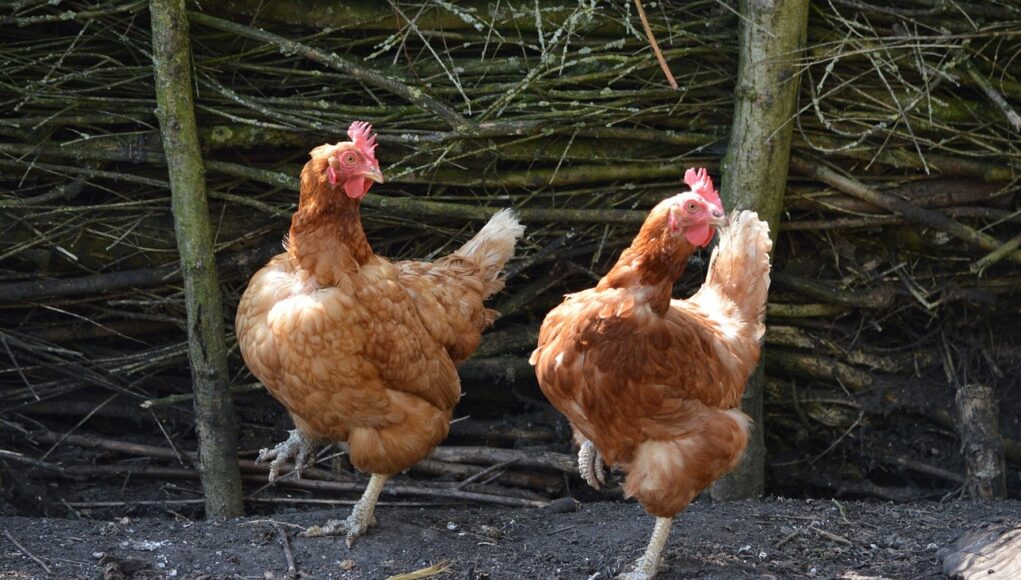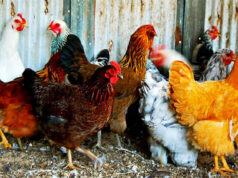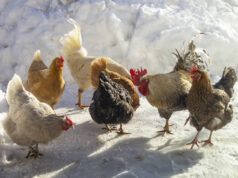Chicken diseases can be a daunting topic for any poultry enthusiast, but it is essential to understand the basics to maintain a healthy flock. In this comprehensive guide, we’ll delve into the most common ailments affecting chickens, their causes, symptoms, and potential remedies. By the end, you’ll be better equipped to keep your flock happy and healthy.

Understanding the Importance of Poultry Health
Maintaining the health of your chickens is crucial not only for their well-being but also for ensuring the productivity of your flock. Healthy chickens lay more eggs, grow faster, and are less expensive to care for in the long run. Recognizing the most common chicken diseases can help you take preventative measures and address issues promptly.
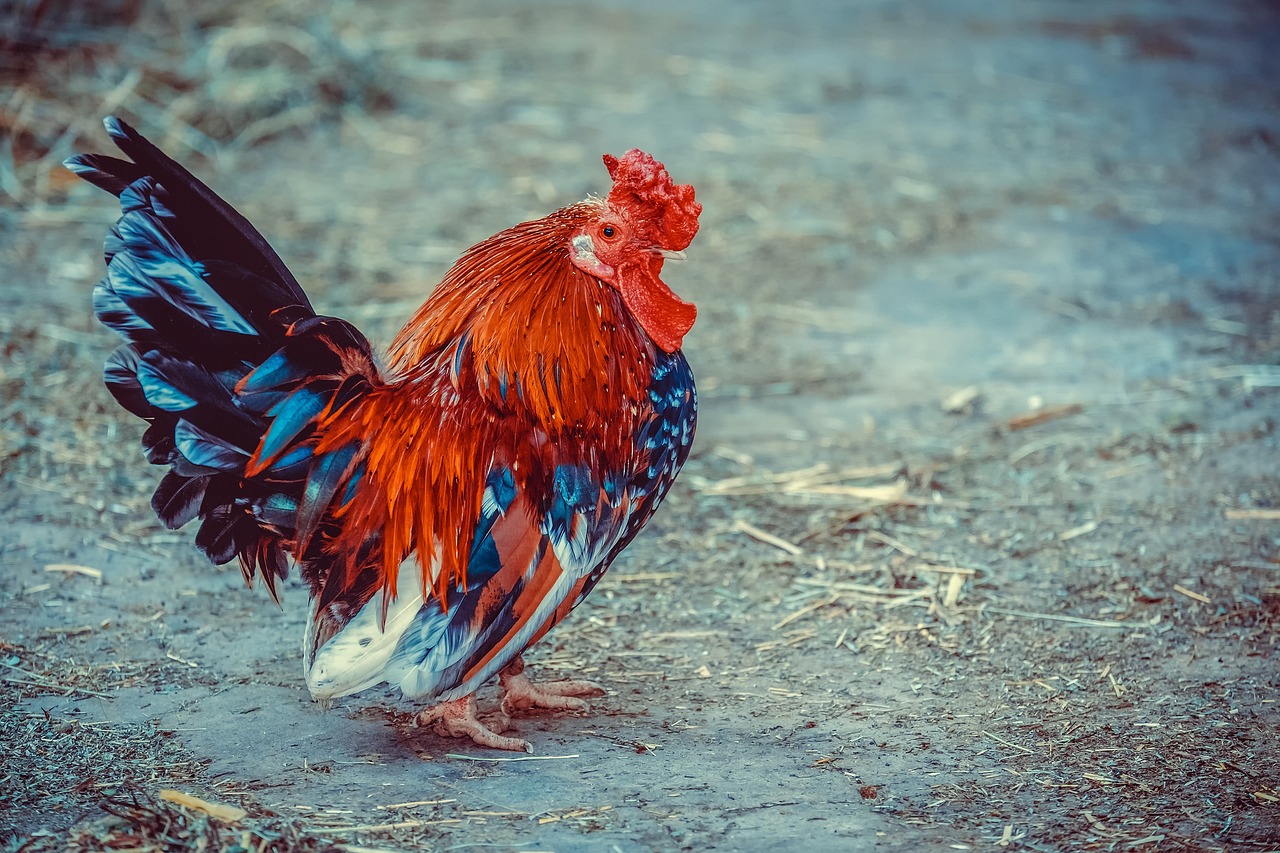
Marek’s Disease: A Serious Threat
Marek’s disease is one of the most well-known and dangerous illnesses in poultry farming. This viral infection primarily affects young chickens and can cause tumors, paralysis, and even death. Vaccination is the most effective way to prevent this disease. For more detailed information on Marek’s Disease, you can visit Marek’s Disease in Chickens.
Symptoms of Marek’s Disease
- Paralysis of legs, wings, and neck
- Weight loss
- Vision impairment
- Tumor development
- Difficulty breathing
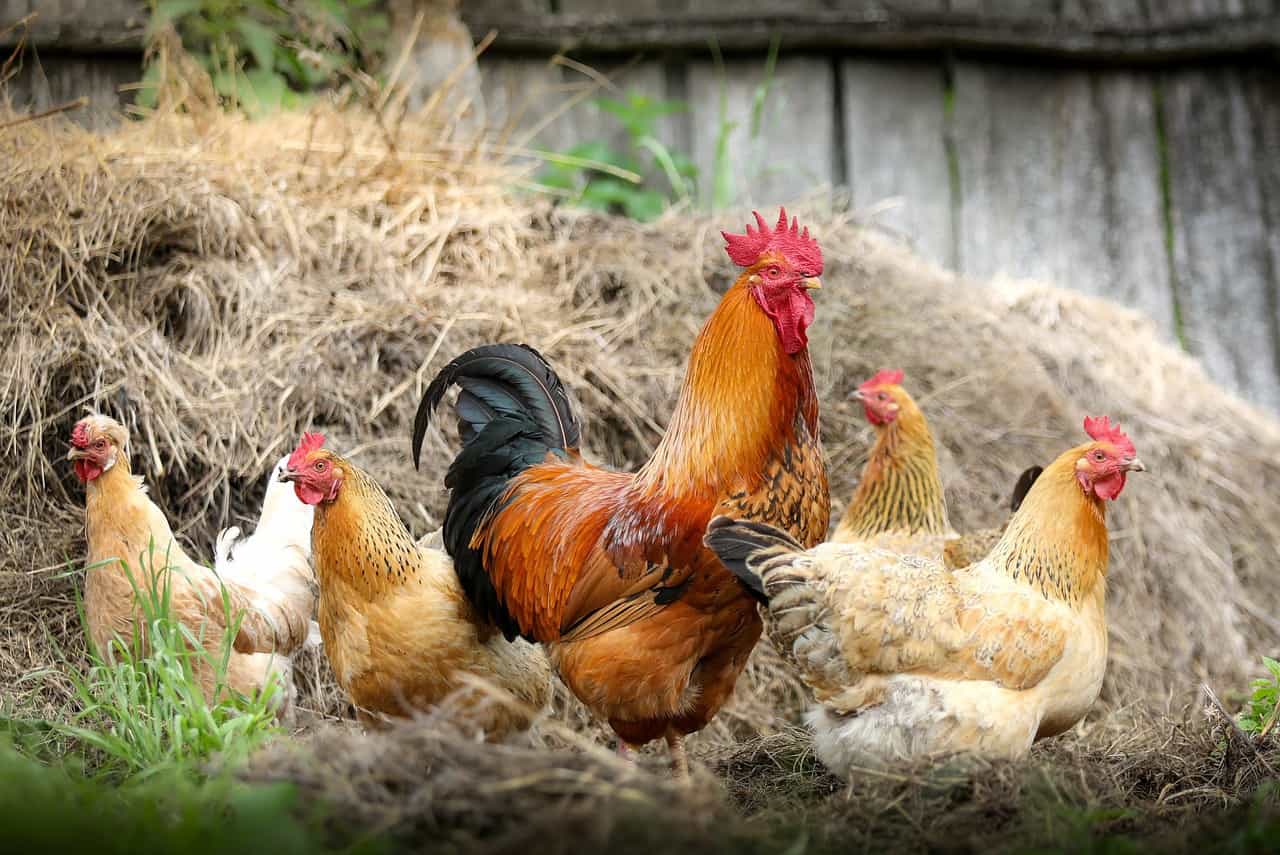
Avian Influenza: The Bird Flu
Avian Influenza, commonly known as bird flu, is another significant threat to poultry worldwide. It is a viral infection that spreads rapidly and can lead to severe respiratory issues and death. Good biosecurity measures and regular monitoring are essential in preventing outbreaks.
Avian Influenza Symptoms
- Respiratory distress
- Swelling of the head, neck, and eyes
- Decreased egg production
- Sudden death
- Nasal discharge

Coccidiosis: A Parasitic Infection
Coccidiosis is a parasitic disease caused by protozoa. It affects the intestinal tract of chickens and can be particularly harmful to young chicks. Proper sanitation and the use of coccidiostats in feed can help in prevention.
Symptoms of Coccidiosis
- Diarrhea
- Dehydration
- Blood in droppings
- Weakness
- Loss of appetite
Newcastle Disease: Highly Contagious
Newcastle disease is a highly contagious viral disease affecting chickens. It can be transmitted through direct contact with infected birds or contaminated environments. Vaccination is crucial in controlling this disease.
Symptoms of Newcastle Disease
- Respiratory distress
- Greenish, watery diarrhea
- Decreased egg production
- Nervous system signs (tremors, paralysis)
- Swelling around the eyes and neck
Infectious Bronchitis: A Respiratory Illness
Infectious bronchitis is a highly contagious viral respiratory disease that affects chickens of all ages. It can significantly impact egg production and quality. Vaccination and maintaining a clean environment are key preventive measures.
Infectious Bronchitis Symptoms
- Gasping for air
- Nasal discharge
- Decreased egg production
- Misshapen eggs
- Coughing and sneezing
Fowl Pox: A Viral Skin Disease
Fowl pox is a viral disease that manifests as lesions on the skin, particularly around the face and wattles. It spreads through direct contact or via mosquitoes. Vaccination and mosquito control can help in prevention.
Symptoms of Fowl Pox
- Scabby lesions on the skin
- Weight loss
- Reduced egg production
- Eye discharge
Mycoplasma Gallisepticum: Chronic Respiratory Disease
Mycoplasma gallisepticum causes chronic respiratory disease in chickens. It can be transmitted through direct contact, contaminated equipment, or airborne droplets. Antibiotics and biosecurity measures are essential for control.
Symptoms of Mycoplasma Gallisepticum
- Respiratory distress
- Nasal discharge
- Swollen sinuses
- Decreased egg production
- Weight loss
Infectious Coryza: Bacterial Infection
Infectious Coryza is a bacterial disease that affects the upper respiratory tract of chickens. It can cause severe inflammation and swelling. Good hygiene practices and antibiotics can help manage this illness.
Infectious Coryza Symptoms
- Swelling of the face and wattles
- Nasal discharge
- Labored breathing
- Decreased egg production
- Appetite loss
Poultry Health Management Tips
Effective management practices can significantly reduce the risk of diseases in your flock:
- Maintain proper sanitation and hygiene in the coop.
- Provide a balanced diet and clean water.
- Regularly inspect chickens for signs of illness.
- Isolate and treat sick birds promptly.
- Practice good biosecurity measures.
Long-term Impacts of Chicken Diseases
Chicken diseases not only affect the individual bird but can also have long-term impacts on the overall productivity and profitability of your flock. It is crucial to address any signs of illness immediately to prevent the spread of disease and minimize losses.
Mental Impact on Chicken Owners
Dealing with chicken diseases can be stressful for poultry owners. It is important to stay informed and have a plan in place to handle any outbreaks. Educating yourself about common chicken diseases, their symptoms, and prevention methods can empower you to take better care of your flock.
Benefits of Regular Health Check-ups
Regular health check-ups for your chickens can help in early detection of diseases and prompt treatment. These check-ups can involve physical inspections, monitoring behavior, and performing routine tests to ensure the well-being of your flock.
Seasonal Variations in Disease Occurrence
Some chicken diseases are more prevalent during certain seasons. For example, respiratory infections are more common in cold, damp weather, while parasitic infestations may increase during warmer months. Being aware of these seasonal variations can help you take appropriate preventive measures.
Preparing for Seasonal Changes
Adjust your management practices according to the season. Ensure proper ventilation in the coop during winter and implement measures to keep the environment clean and dry during the rainy season. Regularly check for external parasites during summer and provide adequate shade and hydration.
The Role of Nutrition in Disease Prevention
Proper nutrition plays a significant role in maintaining the health of your chickens. A balanced diet ensures that your birds receive the essential nutrients needed to boost their immune system and fight off diseases. Provide high-quality feed and supplement their diet with fresh vegetables and fruits.
Vaccination Programs
Vaccination is a crucial aspect of poultry health management. Many common chicken diseases can be prevented through regular vaccination programs. Consult with a veterinarian to develop a vaccination schedule tailored to your flock’s needs.
Integrating New Chickens into Your Flock
When introducing new chickens to your existing flock, quarantine them for at least two weeks. This helps in preventing the spread of any potential diseases. Monitor the new birds for any signs of illness during this period before integrating them with the rest of the flock.
Common Parasites in Chickens
Parasites such as mites, lice, and worms can cause significant health issues in chickens. Regularly inspect your birds for signs of infestation and maintain proper hygiene in the coop to prevent parasite problems.
Parasite Control Measures
Use appropriate treatments like diatomaceous earth or commercial anti-parasitic products to keep your flock free from parasites. Clean the coop thoroughly and provide dust baths for your chickens to help control external parasites.
Behavioral Changes and Disease Detection
Changes in behavior can be an early indicator of disease in chickens. Monitor your flock closely for any unusual behavior such as lethargy, changes in eating habits, or social withdrawal. Early detection can make a significant difference in the treatment and recovery of affected birds.
For more insights on managing your chicken flock, check out these informative articles on chicken breeds and egg-laying.
FAQ Section
1. How can I tell if my chicken is sick?
Look for signs such as lethargy, changes in eating or drinking habits, abnormal droppings, respiratory distress, and changes in behavior. Regularly inspecting your chickens can help you detect illness early.
2. What should I do if I suspect my chicken has a disease?
Isolate the sick bird from the rest of the flock and consult with a veterinarian for a proper diagnosis and treatment plan. Ensure good sanitation and biosecurity measures to prevent the spread of disease.
3. How can I prevent common chicken diseases?
Maintain a clean and hygienic environment, provide a balanced diet, regularly vaccinate your chickens, and perform routine health checks. Implement biosecurity measures to reduce the risk of disease introduction and spread.
As an Amazon Associate, I earn from qualifying purchases.
For more extensive reading on poultry health, you can refer to this detailed guide.
